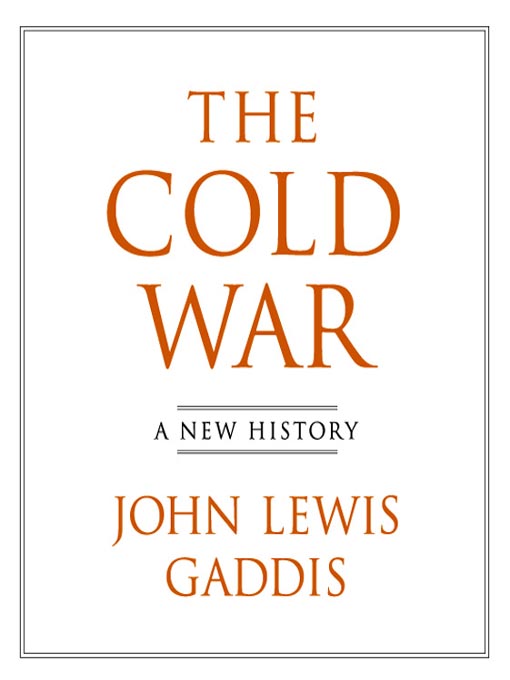
The Cold War
A New History
کتاب های مرتبط
- اطلاعات
- نقد و بررسی
- دیدگاه کاربران
نقد و بررسی

If only history were taught with such drama! Historian John Lewis Gaddis explains the complicated story of a half-century in less than 10 hours. Narrators Jay Gregory and Alan Sklar also engage. While Gregory handles the bulk of the narration with his authoritative, measured tones, Sklar joins in to lend voice to the quotes from famous leaders such as Khrushchev, Reagan, and Chairman Mao. Sklar's reflections set the tone for the sheer stupidity of some leaders, the tactical genius of others, and, more often than not, odd twists of fate. Gaddis shows us the world through different eyes--Russian eyes, Chinese eyes, French eyes--in a humbling history lesson, impossible to forget. M.S. (c) AudioFile 2006, Portland, Maine

Starred review from November 14, 2005
If it's difficult to imagine a history of the Cold War that can be described as thrilling, that should add more luster to Yale historian Gaddis's crown. Gaddis, who's written some half-dozen studies of the Cold War, delivers an utterly engrossing account of Soviet-U.S. relations from WWII to the collapse of the U.S.S.R. The ideological clash between democratic capitalism and communism predated the war, of course, but the emergence of nuclear weapons created a new political situation. Suddenly, it was easy to imagine total war that might destroy not only the enemy but also the victor. Gaddis assesses what he sees as the positive contributions Thatcher, Reagan and Pope John Paul II made to furthering the disintegration of the U.S.S.R. and concludes with a sympathetic portrait of Gorbachev; his refusal to use force ultimately cost him both communism and his country, but, says Gaddis, it also made him "the most deserving recipient ever of the Nobel Peace Prize." The interpretations on offer are not startlingly original—we've read this before, mostly in other books by Gaddis himself—but a new, concise narration was Gaddis's aim here, and he succeeds royally. His synthesis is sure to reign with general history readers and in undergraduate classrooms. 8 maps not seen by PW
.

November 1, 2006
Yale University historian Gaddis brings a depth of knowledgesix previous books on the subjectand lucidity of language to a sweeping overview of the Cold War, mostly from the end of World War II to the disintegration of the Soviet Union. Personalities are among the dominant features here: Mikhail Gorbachev, for example, was "the most deserving recipient ever of the Nobel Peace Prize." This is because Gorbachev did not unleash the might of the Soviet military machine even as the Communist government crumbled around him. In this highly significant way, the Cold War can be considered as much for what did not happen as for what did. Among the other notables due praise, many but not all primarily in the realm of ideas, are Margaret Thatcher, Ronald Reagan, George Orwell, and Pope John Paul II. Totalitarian systems flourished in the early postwar stages of the Cold War, but curiously they began to fade. By the time of the Soviet collapse, authoritarian regimes worldwide were losing control. Narrators Jay Gregory and Alan Sklar are lucid, but they sound much the same. There is no doubt that the book is a classic, sure to be heavily used by students of recent history.Don Wismer, Cary Memorial Lib., Wayne, ME
Copyright 2006 Library Journal, LLC Used with permission.

























دیدگاه کاربران